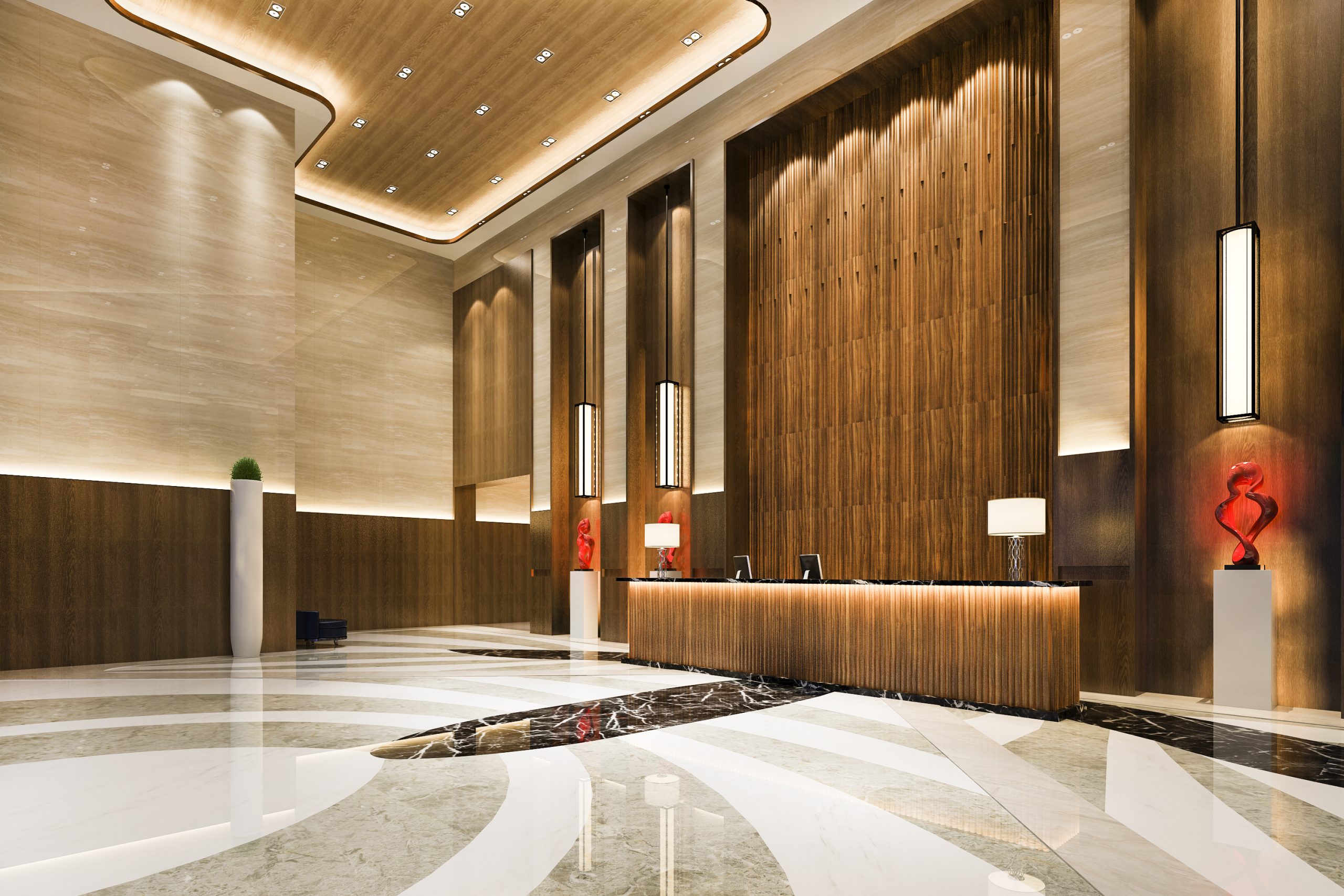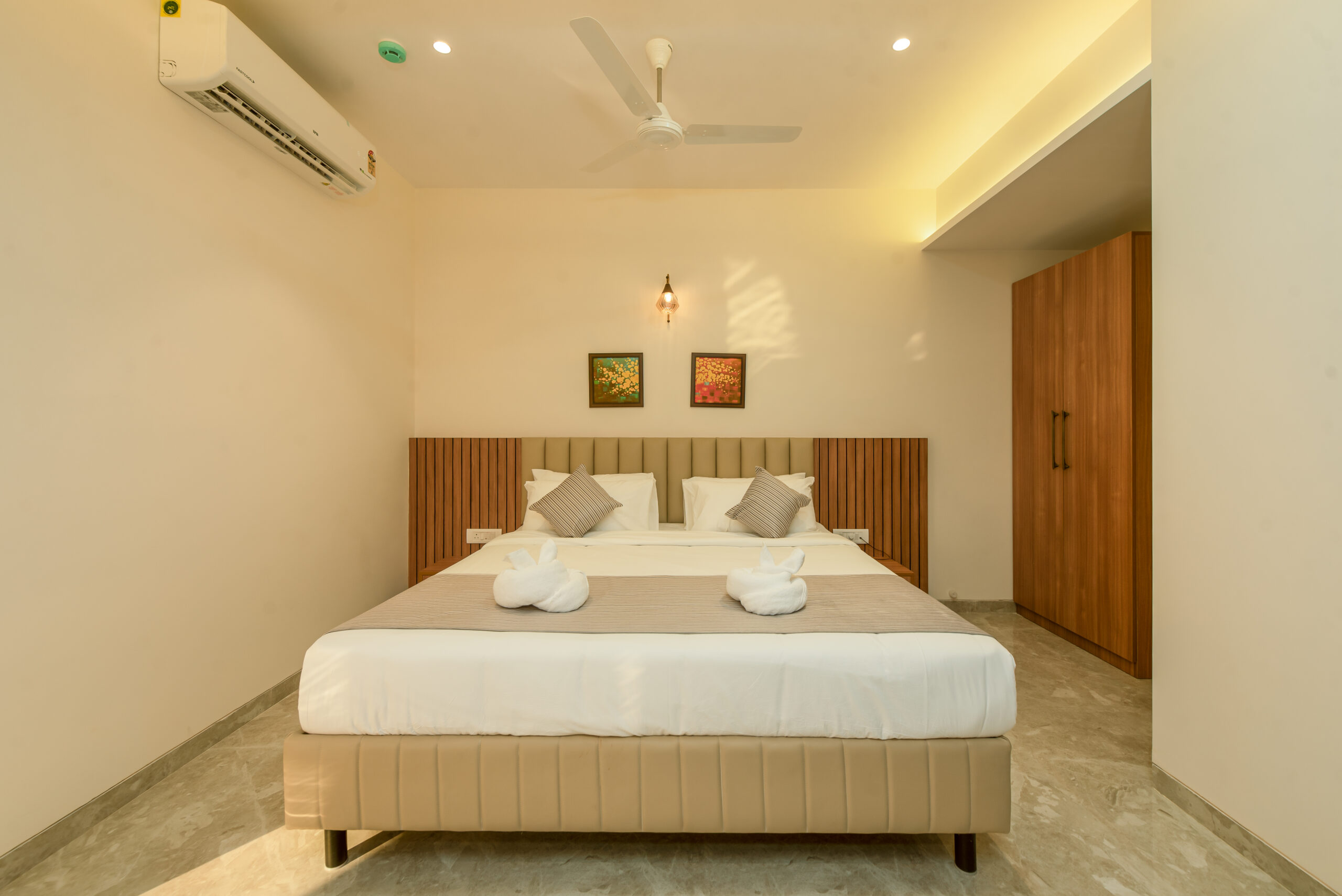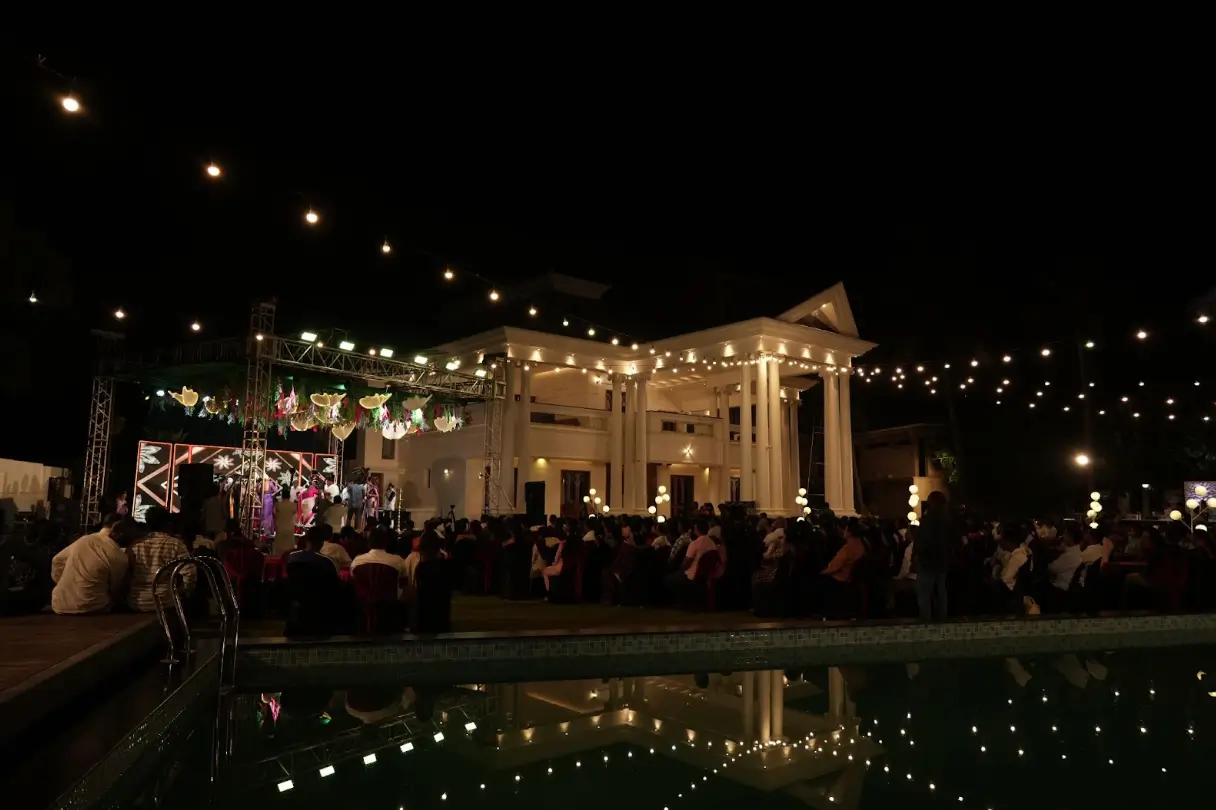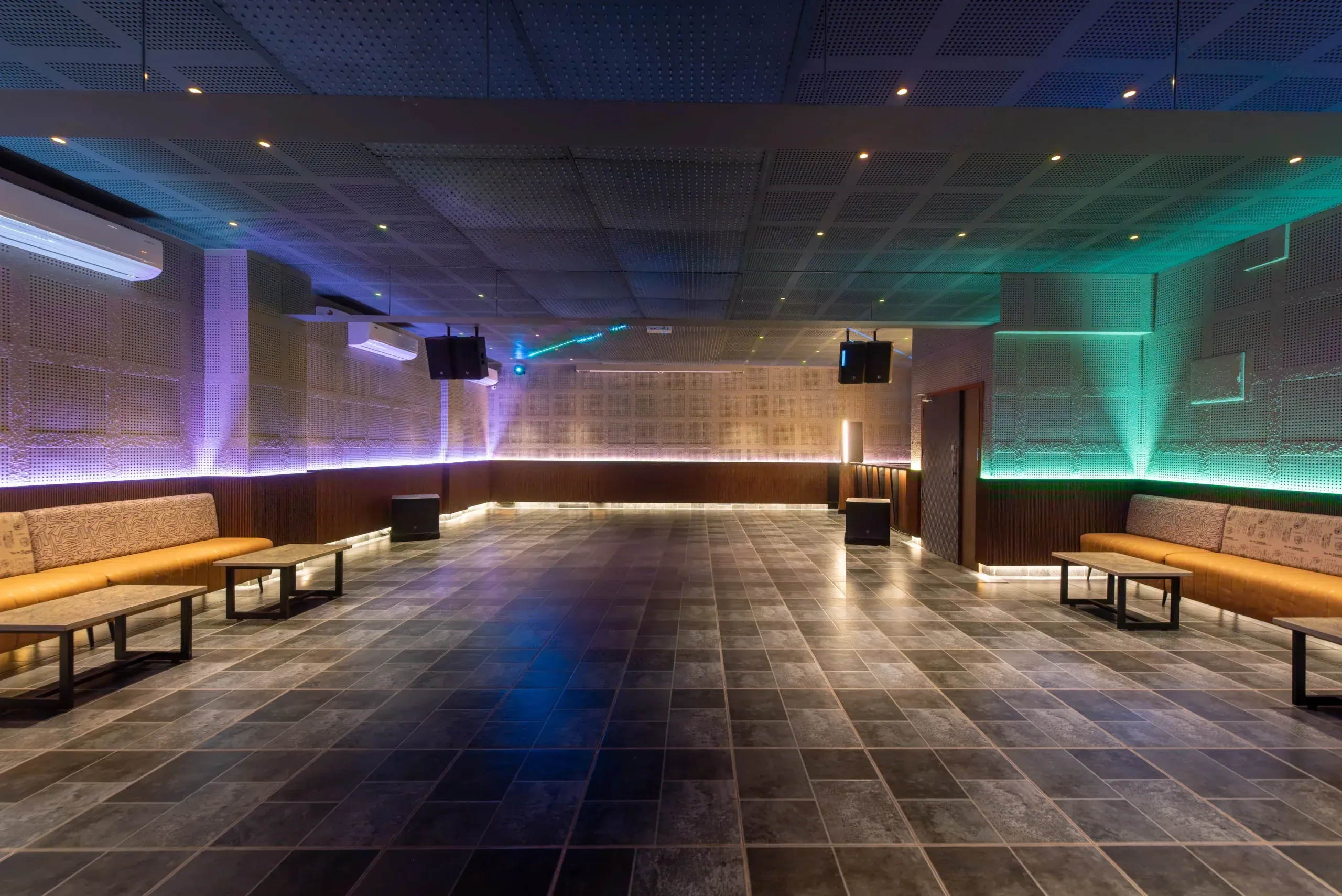Table of Contents
Introduction
Finding yourself in an uncomfortable hotel room with noisy neighbors, a view of the parking lot, and subpar amenities can quickly derail your carefully planned trip. The average traveler spends 30% of their travel budget on accommodations, yet many fail to invest time in booking the perfect hotel room. The consequences? Wasted money, disappointing experiences, and unnecessary stress during what should be a pleasant getaway.
This comprehensive guide offers proven strategies on how to book the perfect hotel room that suits your needs, budget, and expectations. Whether you're planning a business trip, family vacation, or romantic getaway, these expert insights will transform how you approach hotel bookings in 2025.
Understanding Your Accommodation Needs

Before diving into the hotel booking process, clarifying your needs is essential to finding the perfect match.
Define Your Non-Negotiables
Create a priority list dividing hotel features into:
- Must-haves: Features you absolutely cannot compromise on (e.g., free WiFi, air conditioning, proximity to public transportation)
- Nice-to-haves: Amenities that enhance your stay but aren't essential (e.g., swimming pool, on-site restaurant)
- Not important: Features you can easily do without
Consider Your Travel Purpose
Different trips demand different accommodations:
- Business travel: Prioritize reliable WiFi, desk space, convenient location, and early breakfast options
- Family vacation: Look for spacious rooms, kid-friendly amenities, and safety features
- Romantic getaway: Seek privacy, ambiance, special services, and adult-only properties
- Solo adventure: Focus on social spaces, security, and location near activities of interest
Budget Allocation
Determine your accommodation budget by considering:
- Length of stay (longer stays may qualify for discounts)
- Seasonality (peak vs. off-peak pricing)
- Location premium (city center locations typically cost more)
- Alternative accommodation types (hotels vs. vacation rentals)
Best Time to Book Your Hotel Room

Timing can significantly impact both availability and pricing when booking hotel rooms.
The Booking Window Sweet Spot
Research from major booking platforms reveals optimal booking timelines:
- City hotels: Book 1-3 months in advance
- Resort destinations: Book 3-6 months in advance
- Special events/peak season: Book 6-12 months in advance
- Business hotels on weekdays: Book 2-4 weeks in advance
Day of Week Matters
Hotel prices fluctuate throughout the week:
- Business hotels: Lower rates on Friday-Sunday nights
- Leisure destinations: Better deals on Sunday-Thursday nights
- Best booking day: Sunday and Monday evenings typically show lower rates across most booking sites
Seasonal Considerations
Understanding destination seasonality is crucial:
- High season: Maximum prices, advance booking essential
- Shoulder season: Better value with good weather and fewer crowds
- Low season: Best rates but potential weather or limited service issues
Researching Hotels Like a Pro

Effective research ensures you find hotels that match your needs and expectations.
Beyond the Big Booking Sites
While major booking platforms offer convenience, consider these alternative research methods:
- Hotel websites directly: Often offer exclusive deals or perks
- Google Maps exploration: Discover options by location with street view assessment
- Social media: Check hotel Instagram accounts for recent, realistic photos
- Specialized booking sites: Sites catering to luxury, boutique, or budget segments
- Local tourism boards: Often list verified accommodation options
Aggregator Strategy
Use meta-search engines strategically:
- Start with aggregators to identify potential hotels (Kayak, Trivago)
- Check hotel rating consistency across multiple platforms
- Compare prices across different booking sites
- Visit the hotel's official website to check for direct booking benefits
Virtual Reconnaissance
Take advantage of technology to preview your stay:
- Use Street View to assess the neighborhood
- Watch YouTube hotel room tours from real travelers
- Check recent guest photos on review sites (not just professional photos)
- Use hotel room mapping tools that show exact room locations
How to Pick a Good Hotel Room: Location Strategies

Location is perhaps the most critical factor in how to pick a good hotel room that enhances your overall travel experience.
Neighborhood Assessment
Consider these location factors:
- Proximity to your activities: Calculate average transit times to your planned destinations
- Safety profiles: Research neighborhood safety, especially for evening returns
- Noise factors: Check for nearby construction, nightlife districts, or transit hubs
- Walkability score: Higher scores indicate better access to services without transportation
Transportation Considerations
Balance location with transportation needs:
- Public transit proximity: Stations within 5-10 minutes' walk are ideal
- Parking costs: If driving, factor in daily parking fees
- Airport transfer options: Compare hotel shuttle availability with public/private alternatives
- Rideshare availability: Check typical wait times and costs from the hotel area
Microlocations Matter
Within a property, location specifics impact your experience:
- Floor preferences: Higher floors typically offer better views and less noise
- Elevator proximity: Consider distance for convenience but noise potential
- Orientation: Rooms facing away from streets/highways reduce noise
- Special features: Corner rooms often provide more space and windows
Decoding Hotel Room Types and Amenities

Understanding room categories and amenity details prevents booking disappointments.
Room Type Translation Guide
Hotel terminology varies widely; here's what to know:
- Standard rooms: Base-level accommodations with minimal amenities
- Deluxe/Superior: Usually larger or better-located than standard rooms
- Executive/Club: Often include lounge access with complimentary food/beverages
- Junior Suite: Typically a larger room with a sitting area (not a true suite)
- Suite: Separate living and sleeping areas, often with enhanced amenities
Square Footage Reality Check
Room sizes vary dramatically by location and hotel type:
- Budget hotels (US): 250-300 sq ft average
- Mid-range hotels (US): 300-350 sq ft average
- Luxury hotels (US): 400+ sq ft average
- European hotels: Often 15-25% smaller than US equivalents
- Asian luxury hotels: Often 15-20% larger than US equivalents
Always check the actual square footage when available, not just the room category name.
Amenity Fine Print
Look beyond the amenity list to understand the details:
- “Free WiFi”: Check for speed limitations or device restrictions
- “Breakfast included”: Verify the type (continental vs. full buffet) and hours
- “Fitness center”: Check operating hours and equipment variety
- “Pool access”: Confirm if it's seasonal, requires extra fees, or has restricted hours
- “Resort fee inclusions”: Review what the mandatory fee actually covers
Essential Tips for Booking a Hotel: Price Comparison Techniques

Implementing these essential tips for booking a hotel will help you secure the best possible rate.
Rate Type Comparison
Different rate types offer various trade-offs:
- Prepaid non-refundable: Lowest price (usually 15-25% less) but no flexibility
- Flexible rates: Higher price but allows changes/cancellations
- Member rates: Require program signup but offer 5-15% discounts
- Package rates: May bundle benefits for better overall value
Hidden Fees Awareness
Watch for these common fees that can increase your final cost:
- Resort fees: Mandatory daily charges for amenities
- Destination/urban fees: Similar to resort fees but in city properties
- Parking fees: Charges per night in urban locations
- WiFi charges: Still applicable at some properties
- Early check-in/late checkout fees
Strategic Price Tracking
Use technology to monitor for better rates:
- Price tracking tools: Set alerts for price drops on specific dates/properties
- Incognito browsing: Prevents price increases based on repeated searches
- Price match guarantees: Many hotel chains honor competitor rates
- Post-booking price drops: Some booking services automatically rebook at lower rates
Value-Added Booking
Look beyond the base rate for total value:
- Breakfast inclusion
- Credit for dining/spa: May offset higher room rates
- Upgraded WiFi: Business travelers should factor in potential daily charges
- Airport transfers: Can save money depending on location
- Extended checkout: Extra hours can add significant value
Leveraging Loyalty Programs and Memberships

Loyalty programs and memberships can dramatically improve your hotel experience.
Hotel Loyalty Program Maximization
Make the most of hotel brand loyalty:
- Status matching: Transfer status from one program to another
- Challenge promotions: Achieve status faster through limited-time offers
- Point pooling: Combine points with family/friends for redemptions
- Credit card automatic status: Many travel cards offer mid-tier hotel status
Alternative Membership Benefits
Look beyond traditional hotel loyalty programs:
- Corporate rates: Check if your employer has negotiated hotel rates
- Professional associations: Many offer travel discount programs
- Credit card travel portals: May offer exclusive rates or benefits
Elite Status Perks Worth Pursuing
Focus on these high-value elite program benefits:
- Room upgrades: Often the most valuable benefit
- Breakfast inclusion
- Late checkout: Particularly valuable for business travelers
- Lounge access: Provides food, beverages, and workspace
- Welcome amenities: Range from token gifts to substantial food/beverage
Reading Between the Lines: Hotel Reviews

Effective review analysis helps you identify the perfect hotel match.
Review Analysis Strategy
Approach reviews systematically:
- Filter by traveler type: Focus on reviewers similar to you
- Look for consistency: Recurring comments (positive or negative) are likely valid
- Check review dates: Prioritize recent reviews
- Review response quality: Hotel management responses indicate service attitude
- Photo verification: Compare user photos with professional marketing images
Red Flag Identification
Watch for these warning signs:
- Cleanliness complaints: The most reliable negative indicator
- Staff attitude issues: Difficult to remedy during your stay
- Maintenance mentions: Recurring comments suggest systemic problems
- Noise complaints: Particularly if mentioned by multiple reviewers
- WiFi performance: Critical for business travelers and increasingly for all guests
Beyond the Star Rating
Develop a nuanced understanding of ratings:
- Location-adjusted expectations: A 4-star in Bangkok differs from a 4-star in London
- Brand standards variation: Same brands maintain different standards globally
- Recent renovations: Check when the property was last updated
- Management changes: Recent ownership/management changes can affect quality
Making the Booking: Timing and Methods

How and when you complete your booking affects both price and room assignment.
Direct vs. Third-Party Booking
Consider these factors when choosing booking channels:
- Direct booking benefits: Often includes free WiFi, loyalty points, better cancellation terms
- OTA advantages: Potentially lower rates, rewards programs, bundling options
- Booking intermediaries: May offer cashback or rewards outside hotel programs
- Travel agent value: Access to unpublished rates and added perks for luxury properties
Rate Code Strategy
Utilize these rate codes for potential savings:
- Advance purchase: Typically 15-30% savings for non-refundable bookings
- Length-of-stay discounts: Often trigger at 3+ or 5+ nights
- Mobile app rates: Some chains offer app-exclusive discounts
- Package rates: Adding breakfast or parking can represent overall savings
Mobile Booking Advantages
Consider these benefits of booking through hotel mobile apps:
- Mobile-only rates: Exclusive discounts not available on websites
- Digital check-in: Select specific rooms and bypass front desk queues
- Digital key access: Skip key pickup entirely at participating properties
- In-app communication: Direct messaging with hotel staff
Securing the Best Room in Your Chosen Hotel

Once you've selected a hotel, these techniques help secure the best possible room.
Pre-Arrival Communication
Contact the hotel 1-3 days before arrival:
- Email the front desk manager: More effective than general contact addresses
- Mention any special occasions: Celebrations often trigger complimentary upgrades
- Make specific (but reasonable) requests: Corner room, higher floor, quiet section
- Inform about early arrival/late departure: Increases chances of accommodation
Check-In Strategies
Maximize your chances of room improvements:
- Timing matters: Mid-afternoon (2-4 pm) often offers more upgrade possibilities
- In-person vs. digital check-in: In-person provides negotiation opportunities
- Friendly approach: Politeness significantly increases upgrade probability
- Specific requests: “Is there a possibility of a corner room?” works better than “Can I get an upgrade?”
Loyalty Program Leverage
Use your status effectively:
- Mention status subtly: Front desk can see it, but a gentle reminder helps
- Use program-specific language: “I'd appreciate any Diamond benefits available”
- Suite Night Awards: Apply these strategically when available
- Know your benefits: Request specific entitlements if not offered
Room Inspection Before Settling
Take these steps before unpacking:
- Check for cleanliness issues in bathroom and bedding
- Test key room functions (HVAC, water pressure, WiFi)
- Assess noise levels by listening near walls/hallway
- Verify if the room matches your specific requests
- Request changes immediately if issues are found
Post-Booking Strategies

Your work isn't done after booking – these post-reservation tactics optimize your experience.
Continued Price Monitoring
Keep tracking prices after booking:
- Price drop services: Some automatically rebook at lower rates
- Cancellation/rebooking calculations: Factor in cancellation penalties
- Rate guarantee claims: Document lower prices found elsewhere
- Last-minute upgrade offers: Hotels often email discounted upgrades pre-arrival
Pre-Arrival Personalization
Enhance your stay through personalization:
- Special requests: Make specific room requests 2-5 days prior to arrival
- Celebration notations: Inform about birthdays, anniversaries, etc.
- Early check-in requirements: Request in advance for priority
- Concierge pre-bookings: Contact for restaurant reservations or activities
Rewards Optimization
Maximize the value of your stay:
- Promotions registration: Ensure you're registered for current bonus offers
- Double-dipping opportunities: Stack hotel points with OTA rewards, credit card points
- Dining/spa credits: Plan usage of resort/destination fee inclusions
- Checkout points verification: Confirm all eligible spending was credited
Conclusion
Mastering how to book the perfect hotel room combines art and science – understanding your needs, researching thoroughly, timing your booking strategically, and leveraging available programs and techniques. The perfect hotel room enhances your entire travel experience, providing comfort, convenience, and value that allow you to fully enjoy your destination.
By following this comprehensive guide, you're now equipped to navigate the hotel booking process like a seasoned travel expert. Remember that the perfect hotel room isn't always the most expensive – it's the one that best aligns with your specific needs, preferences, and budget.
For a comfortable and memorable stay in prime locations, trust The Shoolin Group – your gateway to exceptional hotel experiences and quality accommodations.
Frequently Asked Questions
How far in advance should I book a hotel room for the best rates?
For most city hotels, booking 1-3 months in advance typically offers the best balance of availability and competitive rates. Resort destinations often require 3-6 month advance bookings for optimal pricing, while special events or peak season travel may necessitate 6-12 month advance reservations to secure both availability and reasonable rates.
What's the best day of the week to book a hotel room?
Research indicates that Sunday and Monday evenings typically show the lowest rates across most booking platforms. This is when new inventory and pricing often gets released, creating temporary pricing advantages for savvy bookers.
Are hotel room rates cheaper if I book at the last minute?
Last-minute bookings can sometimes offer savings, particularly for Sunday-Thursday arrivals in business hotels, but this strategy is risky during busy periods, special events, or at resort destinations. For most scenarios, advance booking provides better rates and selection than last-minute options.
What's the difference between a junior suite and a regular suite?
A junior suite typically features a larger room with a sitting area within the same space, while a regular suite offers truly separate living and sleeping areas, often with a door between them. Junior suites are generally 30-50% larger than standard rooms, while full suites may be twice the size or larger.
How reliable are hotel star ratings?
Star ratings vary significantly by country and rating system. In general, focus less on the star rating itself and more on recent guest reviews, especially those from travelers with similar preferences. Official tourism board ratings tend to be more consistent than those assigned by online travel agencies.
Is it better to book directly with the hotel or through a booking site?
Direct bookings typically offer benefits like guaranteed best rates, full loyalty program benefits, better room assignments, more flexible cancellation policies, and direct communication with the property. However, online travel agencies may offer lower rates during promotions or through bundled packages with flights or car rentals.
How can I ensure I get a quiet hotel room?
Request a room on a high floor, away from elevators, ice machines, housekeeping closets, and not facing busy streets. Corner rooms often have fewer shared walls with neighbors. Specifically ask for a “quiet room” during booking and again at check-in, as hotel staff know which rooms have noise issues.
What should I do if my hotel room doesn't match the description or photos?
Document the discrepancies with photos, then immediately contact the front desk to request a room change. If the issue cannot be resolved satisfactorily, contact the booking platform's customer service if you used one. For significant misrepresentations, consider requesting partial compensation or moving to another property.















